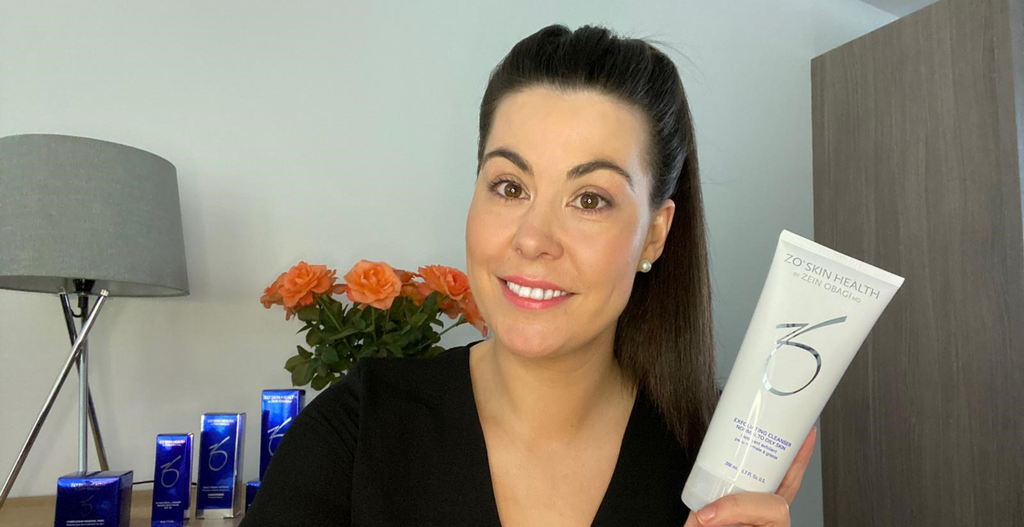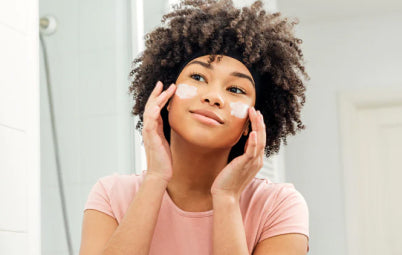Book now or complete our quick reorder form
You may have heard of the main skin types of dry, oily, combination and sensitive. Most of the time, the dry skin type is just a little on the dry side and something to be aware of when buying products. But sometimes dry skin can become much worse and start affecting everyday life.
Dry skin isn’t a serious condition, and it’s really common, but it can be uncomfortable and unsightly. If you’ve felt a tight sensation after cleansing or noticed some itchy or flaky patches, you might have experienced dry skin. You may have also noticed that make-up doesn’t sit as well on the skin or that your skincare products aren’t being absorbed.
Some other symptoms of dry skin include:
- Patches of skin that are dry to the touch
- Rough patches
- Flaking or peeling
- Dull complexion or redness
- Chapped and cracked skin
Luckily, there is something you can do about it. Here at Face Dr, some of our skin experts have decades of experience treating all kinds of skin concerns, including dry skin. So we know how hard it is to choose products or treatments for difficult skin like this.
We believe the first step to any skincare concern is understanding it, so here’s our guide to everything you need to know about dry skin, including some tips on how to treat it.
Want to get expert recommendations tailored for you? We offer free online skincare consultations where you can skip the research and get a made-for-you routine to tackle dry skin.
What causes dry skin?

Your skin becomes dry when its natural barrier breaks down and can’t hold onto moisture as well. This breakdown can happen for a variety of reasons; sometimes it’s just age or genetics, but other times it could be something in your environment or lifestyle you can easily change.
The main causes of dry skin are:
- Harsh skincare or makeup products
- Heat from central heating or hot water
- Extreme weather like cold, strong wind or dry air (this is why dry skin is much more common in the winter)
- Contact dermatitis where your skin reacts to something it touches
- Eczema, where red itchy patches develop
- Psoriasis
- An underlying health condition like diabetes or hypothyroidism
How to prevent dry skin

The first step to keeping skin healthy and hydrated is to avoid any products that could cause dryness or irritation. This means anything with harsh chemicals, colours or fragrances, for example.
Before using a new product, be sure to do a patch test. Simply swipe a small amount of the product on the inside of your wrist or behind your ear. Wait 24 to 48 hours and check for a reaction or signs of dryness. If you don’t notice anything, you should be good to go.
When using stronger products, like peels or exfoliators, it’s best to start out slowly and use the product just once a week at first as your skin gets used to it.
Long hot showers may feel luxurious, but they could be wreaking havoc with your skin. If you’re prone to dry skin or you start noticing the first signs of irritation, try cutting down your time in the bath and shower. Plus, keep the water temperature to a moderate level.
How to treat dry skin

Luckily, dry skin doesn’t have to stay dry forever. If you’re already suffering from dry, itchy or flaky skin, there are some things you can do to restore comfort and moisture.
First up, take a look at your skincare routine. You’ll want to invest in high-grade products that don’t aggravate the skin and instead work to protect its natural moisture barrier and promote healing.
Choose products designed for dry or sensitive skin that won’t strip the skin of more moisture. Opt for a cream cleanser to remove make-up and wash your face, an oil-based serum and a gentle but thick moisturiser to lock in hydration. You can also include a mask in your weekly skincare routine for an extra-hydrating boost and a gentle exfoliator to buff away flaky patches.
Look out for ingredients like glycerin and hyaluronic acid, which are both moisturising. Botanical extracts and antioxidant ingredients can also help to protect and build back up that all-important moisture barrier. Interested in other ingredients to look out for? Check out our top recommended ingredients for dry skin.
Products to try:
Once you’ve optimised your skincare routine for dry skin, it’s time to turn to your environment. If you live in a dry home or area, consider getting a humidifier to add moisture to the air. Cut down on long hot showers and take care with any extremes in temperature, like central heating or cold wind.
Finally, don’t forget to drink plenty of water. This helps with everything in life, including dry skin.
Need expert advice on dry skin?

Dry skin can be particularly difficult, especially when it comes to choosing products and treatments. Luckily, our skin experts have treated thousands of clients, many of them with dry skin, so they know a thing or two about this skin type and condition.
Most of the time, it’s nothing serious and can be fixed with some carefully chosen skincare products and changes to your environment and lifestyle. But every now and again, dry skin can be a sign of something more serious. Our team of experts can help to determine if it’s something that needs further attention, and we’ll also refer to our GP where necessary.
If you’re looking for advice on how best to manage your dry skin, book a free online skincare consultation and our team can help. We’ll analyse your skin and recommend products and treatments tailored to you to help restore comfort and moisture.










